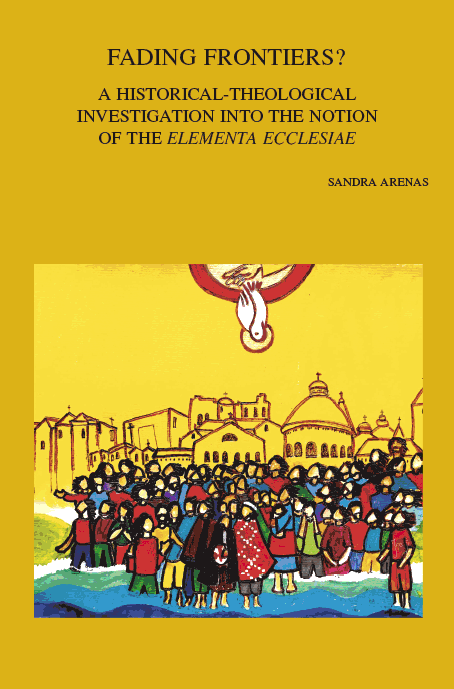

 0
EN
0
EN

One aspect of the ecclesiological renewal at Vatican II that has not
received much scholarly attention so far is the doctrine of the
“elements of the church” (elementa ecclesiae), previously unheard
of in Roman Catholic magisterial documents. This book offers an original
and comprehensive study of this notion and how it became part of the
official teaching of the Roman Catholic church.
Using a historical-theological approach, the author studies the origins
and evolution of the concept of the “elements of the church” and gives a
nuanced understanding of this doctrine as outlined in Lumen
gentium § 8 and Unitatis redintegratio § 3.
In this way, the author offers a renewed insight into the evolution of
the position of the Roman Catholic church “in oecumenicis” during and in
the aftermath of Vatican II. The development sketched in the book is
characterized by a double perspective. On the one hand, there is the
debate about the frontiers of the church that focuses on the
relationship between the Roman Catholic church and the church of Christ.
On the other hand, and closely related to the first aspect, there is the
issue of the recognition of “ecclesial” elements in non-Catholic
Christian communities. Both threads are closely interwoven and it is
important to understand the relationship if one wants to do justice to
the doctrinal balance and complexity of Vatican II’s ecumenical
ecclesiology. Taking these two aspects together, one should readily
acknowledge the shift that typifies Roman Catholic ecclesiology from a
juridical approach to the question of defining the Roman Catholic
church’s frontiers over against the outside world – and a
fortiori over against other Christian denominations – towards a
sacramental approach to Roman Catholic ecclesiology in which the notions
of sacramentality and mystery are foundational. Along with this new
approach came a renewed attention for a Christ-centred ecclesiology and
a recognition of the activity and work of the Spirit outside the Roman
Catholic church. All of these aspects are touched upon in this book.
The author has studied original documentation in a number of archives. The book thus offers a detailed reconstruction of textual evolutions and highlights the role played by Catholic and non-Catholic theologians who have helped shape contemporary ecclesiological thought. It gives us insight into the complex background history of the elementa ecclesiae and shows how it continues to inspire post-conciliar ecclesiological and ecumenical discussions.



